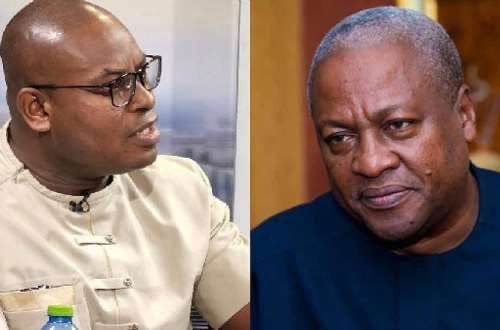The detention of Bernard Antwi Boasiako, also known as Chairman Wontumi, the Ashanti Regional Chairman of the New Patriotic Party (NPP), has ignited a political firestorm in Ghana, with accusations and counter-accusations flying between the ruling National Democratic Congress (NDC) and the opposition NPP. Wontumi’s arrest by the Economic and Organized Crime Office (EOCO) on allegations of financial impropriety and causing financial loss to the state has become the focal point of a broader political battle, with the NPP alleging that the arrest is a calculated diversionary tactic by the NDC to deflect public scrutiny from its own controversial actions. Richard Ahiagbah, the NPP’s National Communications Director, has been particularly vocal in this regard, accusing the government of using Wontumi’s detention to draw attention away from the appointment of Anne Sansa Daly to the National Health Insurance Authority (NHIA) board and the Vice President’s use of a private jet for her return from a medical trip abroad.
Ahiagbah contends that the government’s actions represent a blatant attempt to manipulate public perception and shield itself from criticism over these two contentious issues. The appointment of Anne Sansa Daly to the NHIA board has sparked considerable controversy due to questions surrounding her medical credentials, raising concerns about her suitability for the role. The NPP sees this appointment as potentially jeopardizing the integrity and effectiveness of the NHIA, a vital institution responsible for providing healthcare access to millions of Ghanaians. Simultaneously, the Vice President’s use of a private jet, following a medical trip abroad, has drawn criticism, especially given the NDC’s previous condemnation of similar practices by other political figures. Ahiagbah argues that this apparent hypocrisy undermines the NDC’s credibility and raises questions about its commitment to its stated principles.
The NPP views these two issues as significant breaches of public trust and believes the government is attempting to bury them under the noise surrounding Wontumi’s arrest. Ahiagbah insists that the party will not allow these matters to be swept under the rug and will continue to press for accountability once Wontumi’s bail situation is resolved. The NPP’s unwavering stance suggests a deep-seated distrust of the government’s motives and a conviction that the Wontumi case is being exploited for political gain. The party’s determination to revisit these issues signals a protracted political battle in the coming days, with the potential to further polarize the political landscape.
The ongoing saga underscores the deep political divisions within Ghana and the increasing tendency to use legal processes as political tools. The NPP’s allegations raise serious concerns about the potential misuse of state institutions for partisan purposes, threatening the integrity of the justice system and eroding public trust in governance. The accusation that EOCO’s actions are politically motivated casts a shadow over the agency’s impartiality and raises questions about whether the pursuit of justice is being compromised by political expediency. This perception of political interference undermines the rule of law and creates an environment of distrust, potentially destabilizing the political landscape.
The controversy surrounding Wontumi’s detention, the appointment of Anne Sansa Daly, and the Vice President’s private jet travel highlights the crucial need for transparency and accountability in Ghanaian politics. The public deserves clear answers regarding the controversies surrounding these issues. A thorough investigation into the allegations against Chairman Wontumi is essential to ensure that justice is served impartially, without any political influence. Equally important is a transparent process for vetting appointments to public office, particularly those involving sensitive institutions like the NHIA. Clear guidelines and criteria should be established and adhered to, ensuring that individuals appointed to such positions possess the necessary qualifications and integrity.
Furthermore, a clear policy on the use of public funds for private travel by government officials should be formulated and enforced consistently. This will help to prevent accusations of hypocrisy and ensure that public resources are used responsibly and ethically. Ultimately, fostering a political climate characterized by transparency, accountability, and respect for the rule of law is essential for strengthening democratic institutions and building public trust in governance. The current situation presents an opportunity for Ghana to address these critical issues and reaffirm its commitment to democratic principles.


